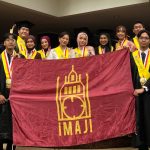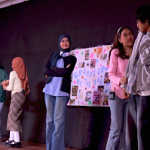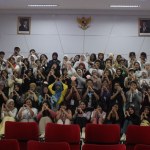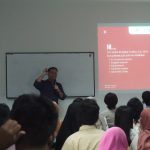Arsip:
Our Stories
A Reflective Essay by Emily Trisnandi, Intern at PT STAR Software Indonesia In my last semester of college, I had the opportunity to join an internship program held by the English Department UGM and PT.
SGDs 4: Quality Education| SGDs 5: Gender Equality| SGDs 16: Peace, Justice, and Strong Institutions On Monday (13/5/2024), the English Literature Program held an alumni talk with Drs. M.
On Wednesday (22/05), the Faculty of Cultural Sciences, Universitas Gadjah Mada, organized a graduation ceremony at the Auditorium of Soegondo Building. A total of 52 students of whom 5 are students from the English Studies […].
Waking up in a room with a view of yellowing and reddening trees would have been my wildest dream until a year ago. Every new thing that I have experienced from last year’s September until […].
On Wednesday (28/2/2024), the English Literature Study Program held a retirement event for one of the English Literature lecturers, Prof. Dr. Ida Rochani Adi, S.U.
This past Sunday, January 28th, 2024, was a bittersweet day for the English Studies Programme, as we gathered to bid farewell to a beloved member of our faculty, Bapak Dr. Tofan Dwi Harjanto, M.A., […].
Dr. Adi Sutrisno — better known as Pak Adi to generations of Yogya Shansi Fellows — is chair of the Faculty for Cultural Sciences at Universitas Gadjah Mada, one of the most renowned universities in […].
The English Department hosted one public lecture and two seminars in November 2022. All of the events were held in a hybrid format. To attend the events, attendees would either go to the 7th floor […].
Our English Department major held a recruitment event for its students to join the committees of events for an internal Merdeka Belajar – Kampus Merdeka (MBKM) program.
A repost from an Obituary to Prof Stephanus Djawanai by Achmad Munjid, PhD Our FIB UGM team had just finished presenting their study findings at the Jayakarta Military Command Headquarters when they received the unfortunate […].






